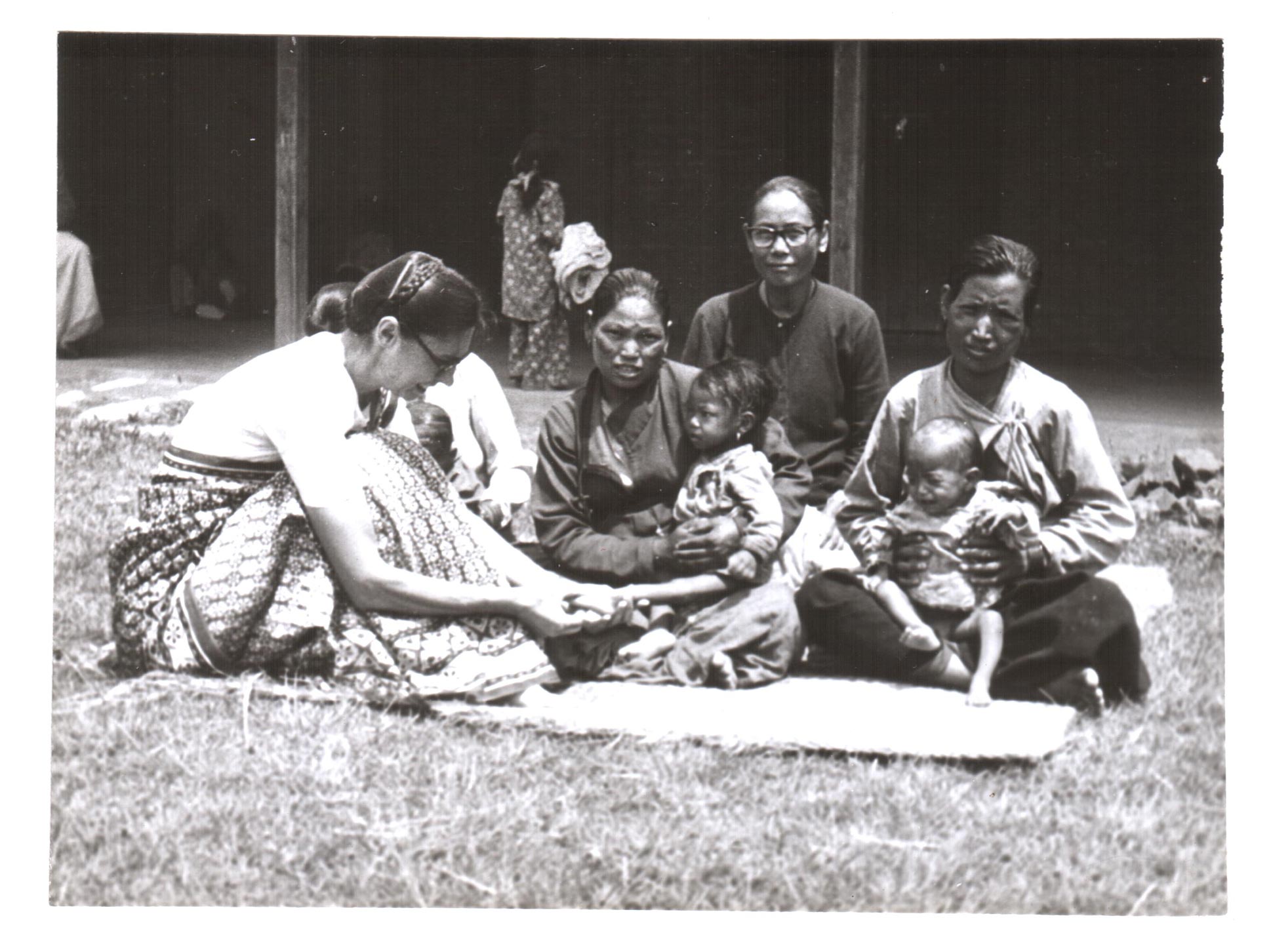Our History
We are part of a 50-year legacy of improving nutrition in Nepal.NPCS was established in 2003 as a successor to United Mission to Nepal’s (UMN) pioneering nutrition work with Nepali women and children. We draw on almost 50 years of experience working at a community-level to improve nutrition and are recognised by the government as a major organisation in addressing malnutrition in Nepal.
Community projects
at our heart
UMN’s work during the 1970s and 80s became more focused on development projects that directly impacted communities. Starting in 1992, UMN’s Nutrition Programme operated through their District Training Programmes as part of a partnership with the Nepali government. The programmes involved nutrition training for Nepali government health staff and nutrition initiatives implemented by UMN field staff.
After five years, UMN’s Nutrition Programme began to work more closely at a community level and directly with mothers. This meant improvements to nutrition could be better sustained and led to the development of Community Nutrition Projects in 1999.
Nepalis well-nourished
and thriving
From 2002, changes in government legislation caused UMN to shift from directly implementing projects to instead building partnerships to support local organisations. In 2003, Nutrition Promotion and Consultancy Service (NPCS) was founded to continue this legacy of improving nutrition in Nepal. Taking over the previous work of UMN’s Nutrition Programme, NPCS is now a staff-owned organisation run by Nepalis and operates independently.
We have continued working directly with communities throughout Nepal, focusing on improving the nutrition of women and children in the poorest parts of the country and providing nutritional training to health workers so awareness spreads more widely. Our vision is to see all Nepalis living well-nourished and thriving lives — one community at a time.
Milestones
1964 —
United Mission to Nepal (UMN)’s nutrition work starts in Shanta Bhawan Hospital in Kathmandu
1972 —
UMN expands nutrition work into its Community Health Programme in Lalitpur district, as well as advising and consulting on projects throughout the country
1992 —
UMN’s Nutrition Programme is established, a separate programme with Nepali leadership
2003 —
Nutrition Promotion and Consultancy Services (NPCS) is formed and registered with Lalitpur District Office and affiliated to the Social Welfare Council as a Nepali National NGO, an independent staff-owned successor to UMN’s Nutrition Programme.
2010 —
NPCS launches a new ‘Nutrition for Urban Communities’ project in Kathmandu-Patan municipalities to reach the increasing numbers of poor urban dwellers living in informal settlements in the city.
2011 —
NPCS is appointed as an implementing partner in USAID’s 5‑year Nepal-wide Integrated Nutrition Programme ‘Suaahara’.
2015 —
NPCS engages for the first time in relief work following the Nepal earthquakes

Miriam E. Krantz,
pioneering good nutrition
in Nepal
Miriam has been a major pioneer in the modern nutrition movement in Nepal and was a founder in NPCS’s formation.
Born and raised on a dairy farm in Pennsylvania, USA and trained in nutrition, Miriam Krantz arrived in Nepal in 1963 and began working in Kathmandu’s Shanta Bhawan hospital, run by United Mission to Nepal (NPCS’s parent organisation).
Her nutrition expertise was soon in demand for projects spanning the country and over the decades she has reached almost every corner of Nepal — often on foot. By the early 1970’s, Miriam was working full-time in UMN’s Lalitpur Community Health Project where she led ground-breaking research into the high levels of child malnutrition. This was where she also invented the recipe for Sarbottam Pitho (Super Flour) and planned the first nutrition rehabilitation home in the country.
Miriam has been extensively involved in training, presenting policy discussion papers and developing nutrition education resources used throughout Nepal by the government. She is the co-author with Dr Ramesh Adhikari of the seminal text on nutrition in Nepal, Child Nutrition and Health.
With a simple approach — people-focussed, using local foods, with rigorous study to find solutions within communities — Miriam has left a significant legacy which continues to benefit Nepali women and children. Almost 60 years on, Miriam remains highly regarded for her nutrition knowledge and expertise and, although now aged in her 80s, she still contributes to NPCS as an advisor.
“There is great importance in learning the practice of keen observation and listening – it is through identifying the positives that most individuals can solve their problems and can achieve health lifestyles.”
Miriam Krantz, aged 83, 2020.
